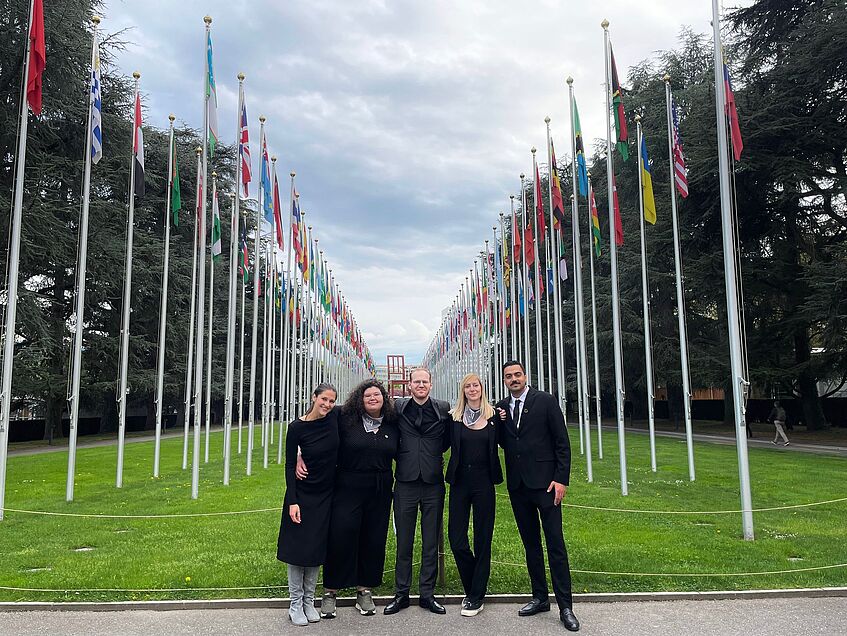
In April 2025, five students from the University of Vienna were invited to the United Nations in Geneva, Switzerland, to give a presentation on “The 1994 Genocide against the Tutsi in Rwanda – Literature as a Means of Documenting the Stages of Genocide”. Read More
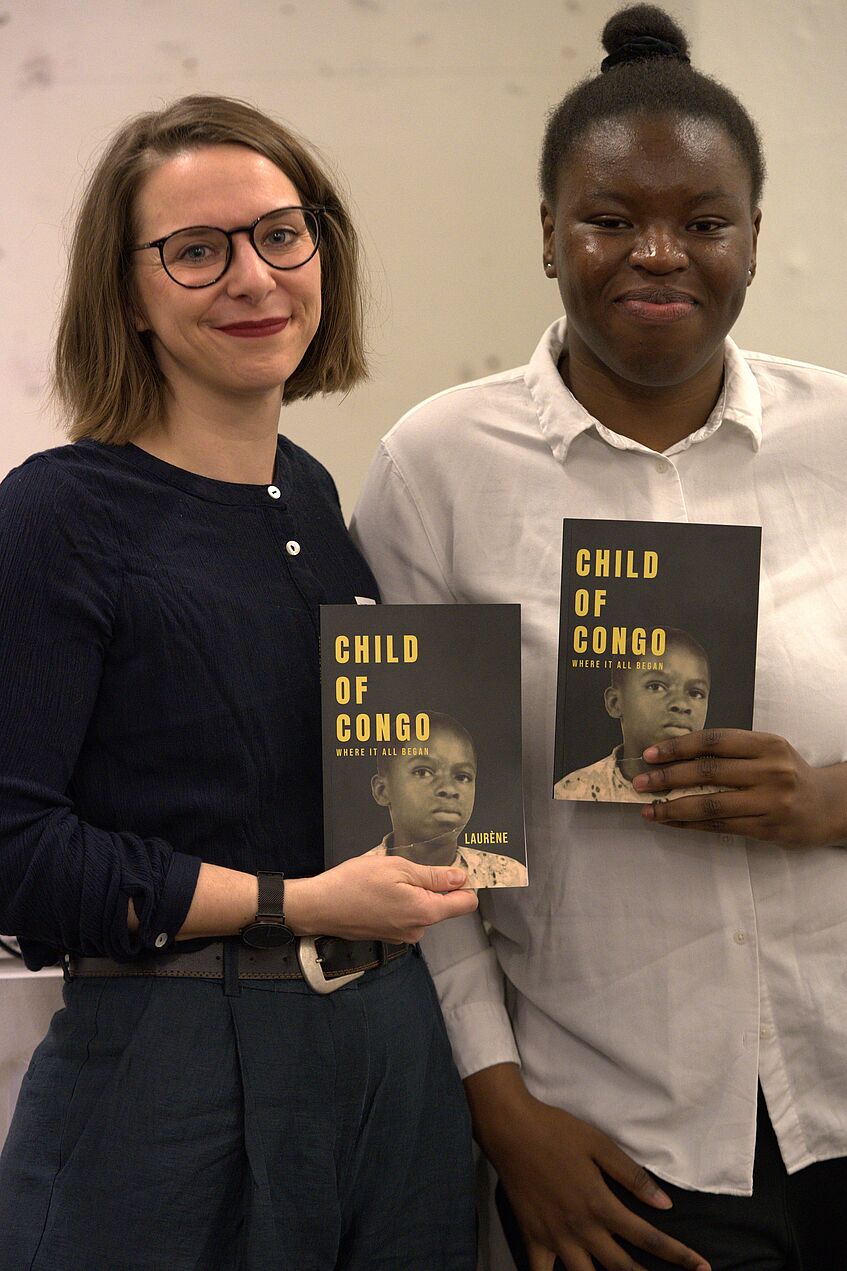
Der Vienna African Writers Club (VAW) ist stolz die Buchpräsentation von Laurène Southes Debüt-Gedichtband Child of Congo unterstützen zu dürfen. Die Buchpräsentation fand am 27. Februar 2025 in der Galerie Zippenfenig statt... Weiterlesen
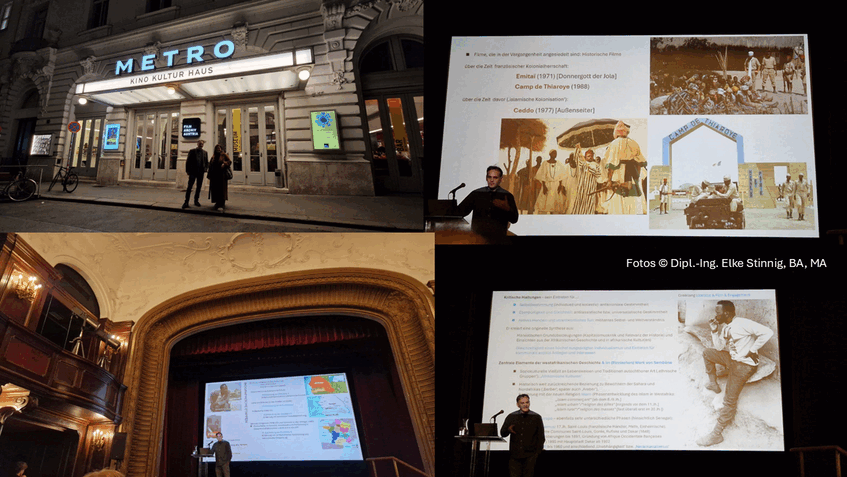
Vor der Abend-Vorführung von „La Noire de…“, jenem zurecht berühmten Klassiker des afrikanischen Kinos, in dem Kolonialismus und Rassismus – auf Schwarz-Weiß-Film gebannt – in unbestechlich differenzierter Weise behandelt werden, hat am Dienstag, den 11. März 2025, Arno Sonderegger (Institut für Afrikawissenschaften)... Weiterlesen
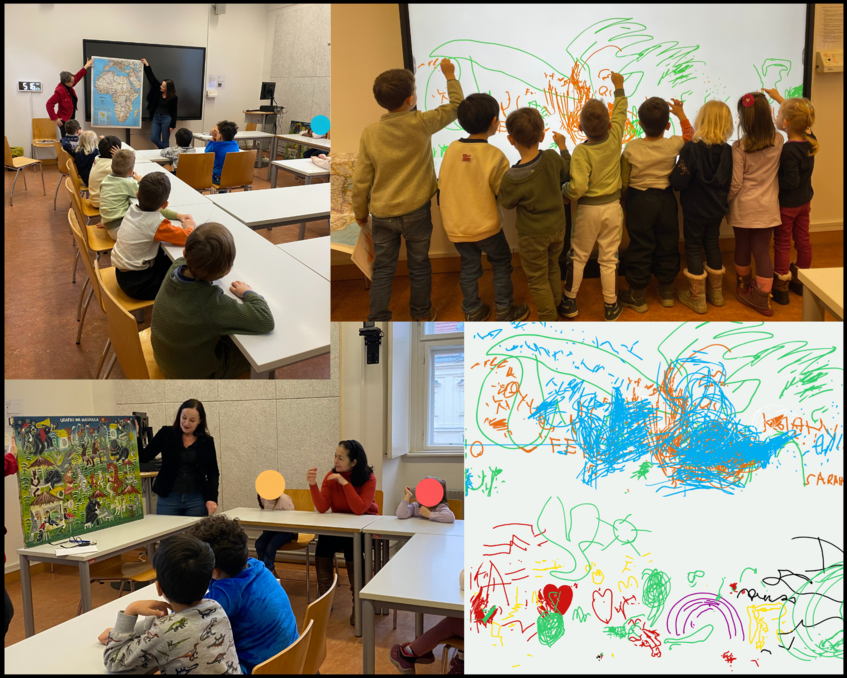
Am 13. Februar 2025 haben wir uns gefreut, die Integrations-Kindergartengruppe der Schönbrunner Straße bei uns zu empfangen. Mehr lesen
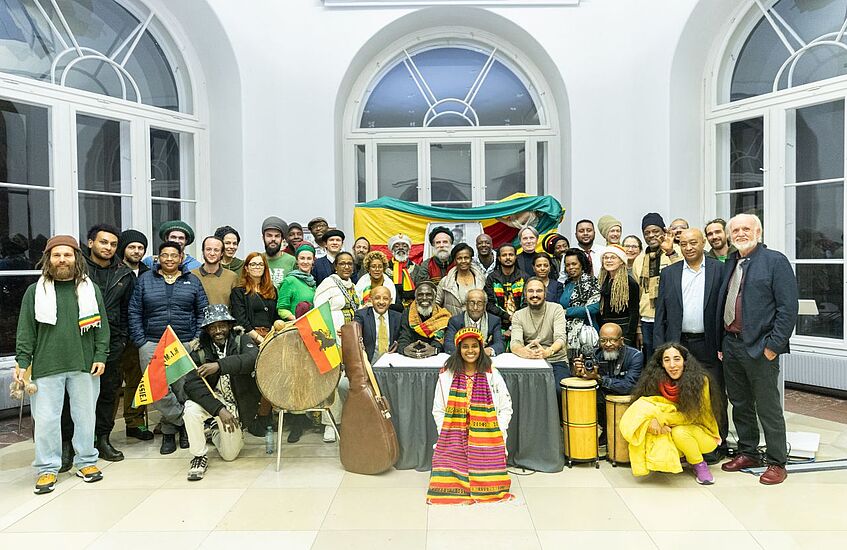
Wir freuen uns, dass das 3-teilige Event unseres FWF-Projekts „Rastafari reasonings on Africa in historical perspective” (P 35987) zum ersten Staatsbesuch in der Zweiten Republik am 28. und 29. November 2024 sehr erfolgreich über die Bühne gegangen ist. Weiterlesen
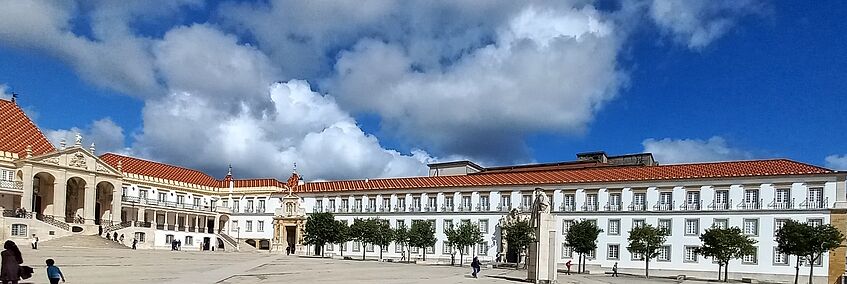
Erasmus macht’s möglich. Im September 2024 hatte Kirsten Rüther Gelegenheit, knappe zwei Wochen an der Universität Coimbra zu verbringen. Weiterlesen
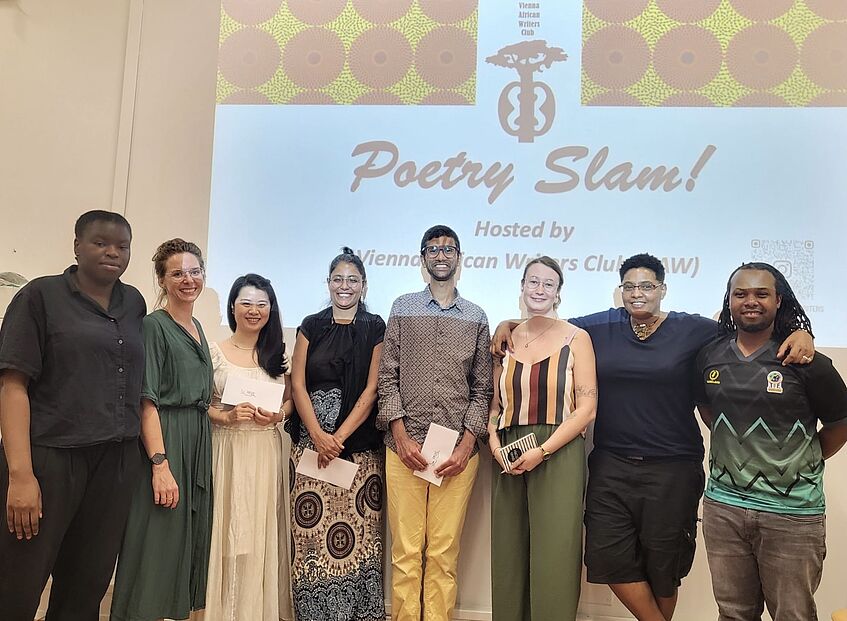
On 25 June, 2024, the Vienna African Writers Club (VAW), which was founded by Prof. Adams Bodomo, hosted a Poetry Slam and Open Mic evening... Read more
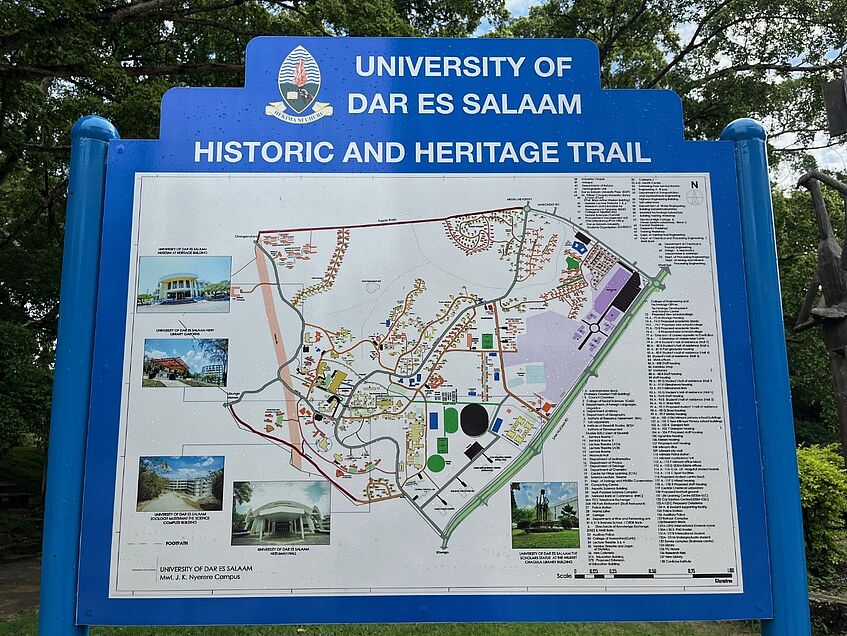
In der zweiten Woche der Osterferien war Daniela Waldburger an der Universität Dar es Salaam (Tansania) zu Besuch... Weiterlesen
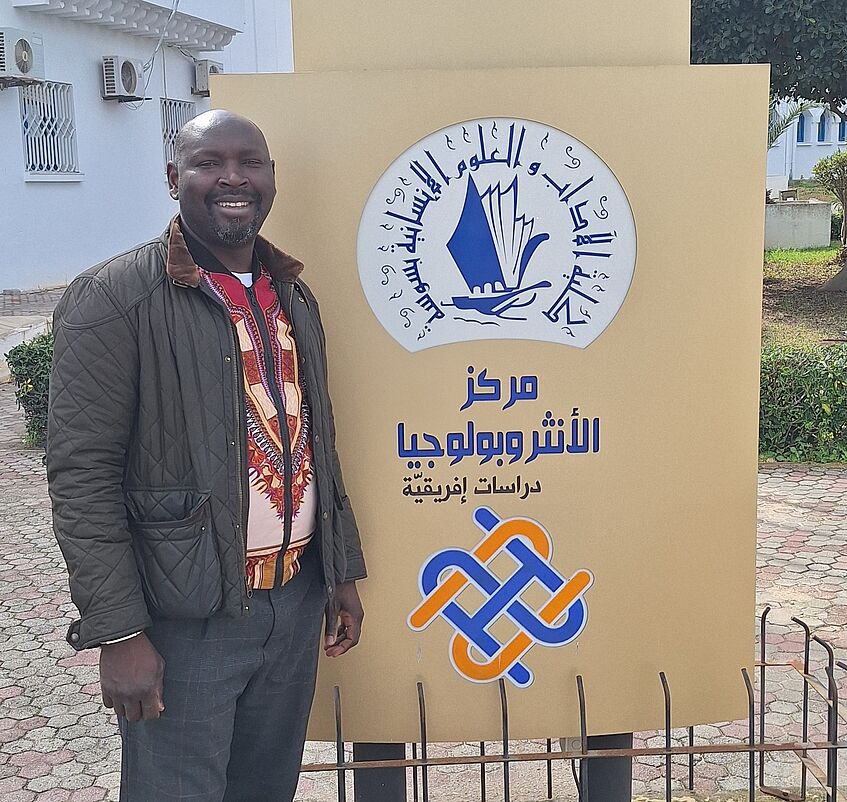
Vom 8. bis 17. Februar besuchte Rémi Tchokothe die Universität von Sousse. Am Centre d'Anthropologie/African Studies hielt er einen öffentlichen Vortrag... Weiterlesen

Vom 26.-29.11.2024 habe ich an der Konferenz "Intersectionality in Discourse, Literatures, and Cultural Studies" an der Universität von Kairouan, Tunesien, teilgenommen. Die Forscher:innen aus Algerien, Türkei, Uruguay, Finnland, Großbritannien und Österreich... Mehr lesen
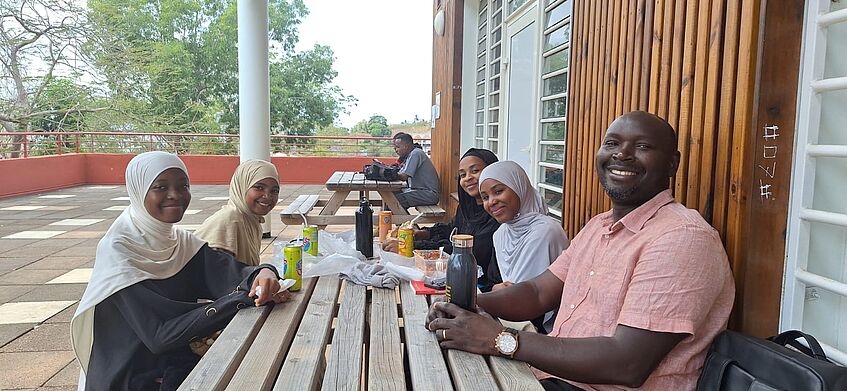
Since 2016, Rémi Tchokothe has been invited yearly as a visiting lecturer at the Université de Mayotte, Comoros Archipelago... Read more
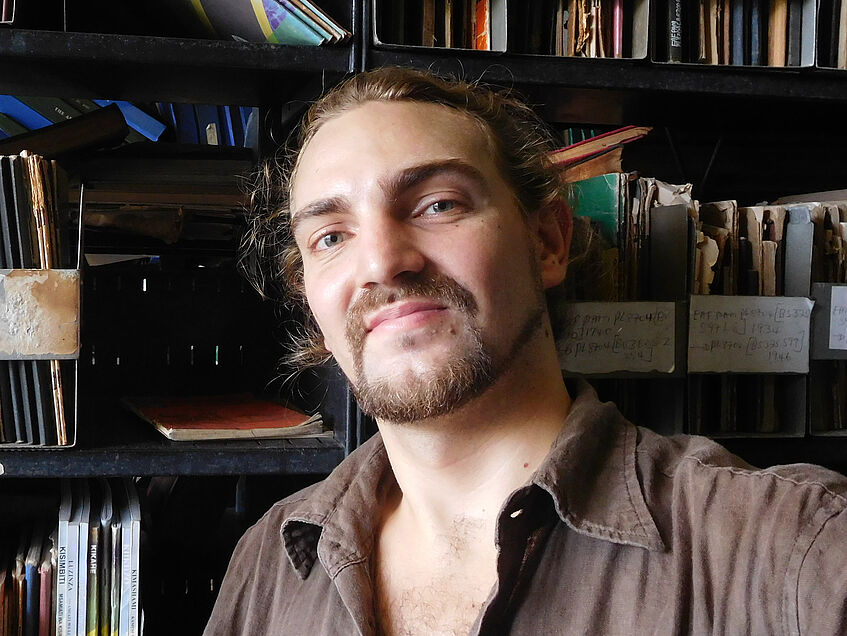
Für seine Dissertation über die afrikanische Gewerkschaftsbewegung im globalen kalten Krieg... Weiterlesen

My name is Alexander Angsongna /alɪɡzandə ǎŋsʊ̀ŋná/ (Alex for short). I am from Sombo in the Nadowli-Kaleo district of Upper West Region, Ghana... Read More
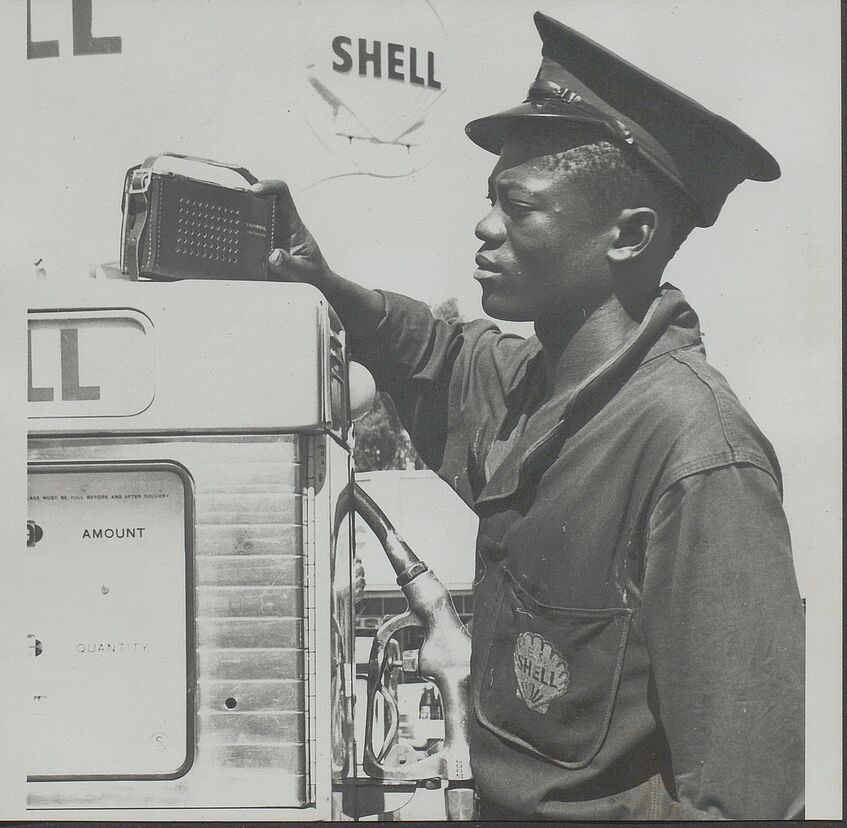
Im August 2024 konnte Kirsten Rüther das Archiv des Lutherischen Weltbundes in Genf besuchen. Dort gibt es Aufzeichnungen über ein ökumenisches Radioprojekt... Weiterlesen
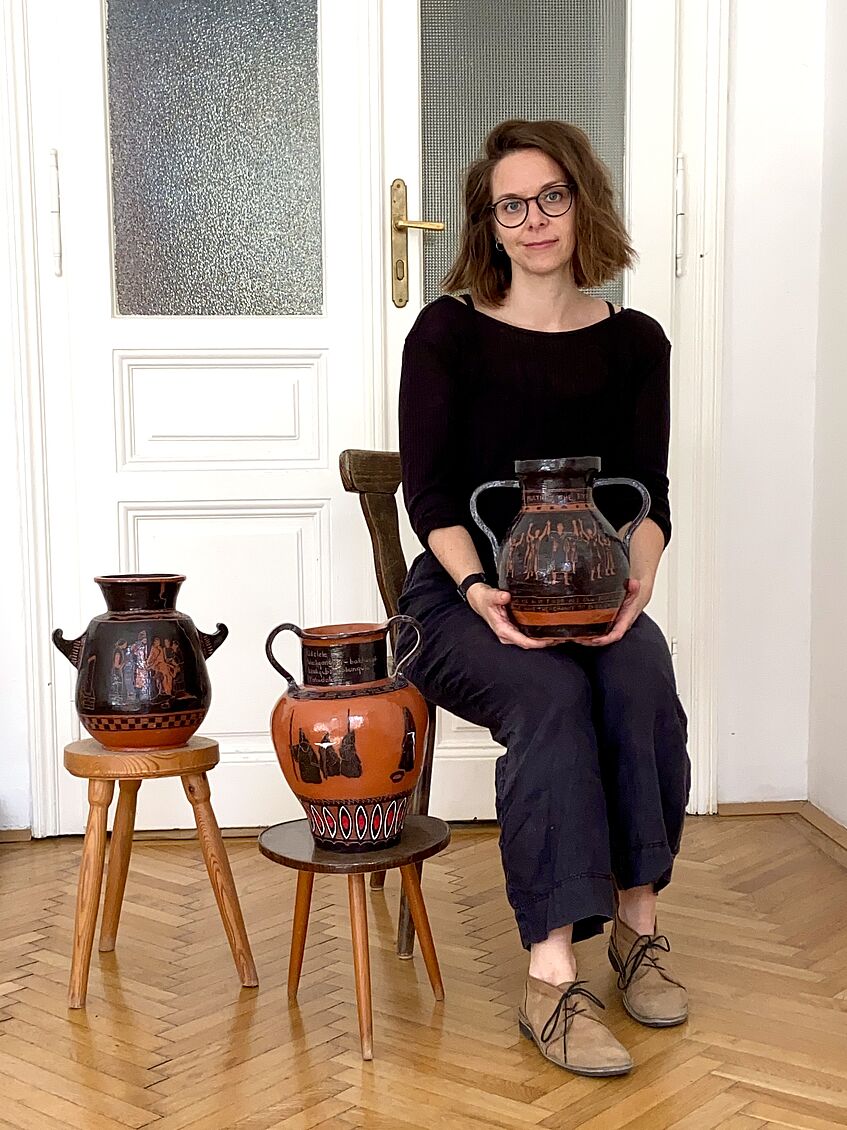
Die Postdoktorandin Elisabeth Knittelfelder war als Creative Fellow Teil des südafrikanischen Forschungsprojekts Reimagining Tragedy from Africa and the Global South (ReTAGS)... Weiterlesen
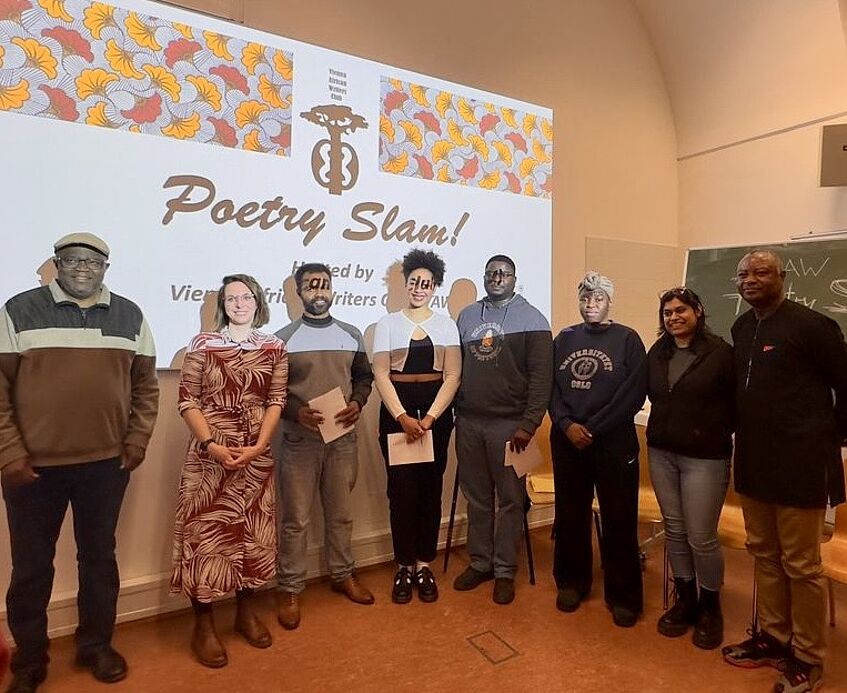
The Vienna African Writers Club (VAW), founded by Prof. Adams Bodomo, hosted another Poetry Slam evening at the Department of African Studies on 10 April, 2025. Read More
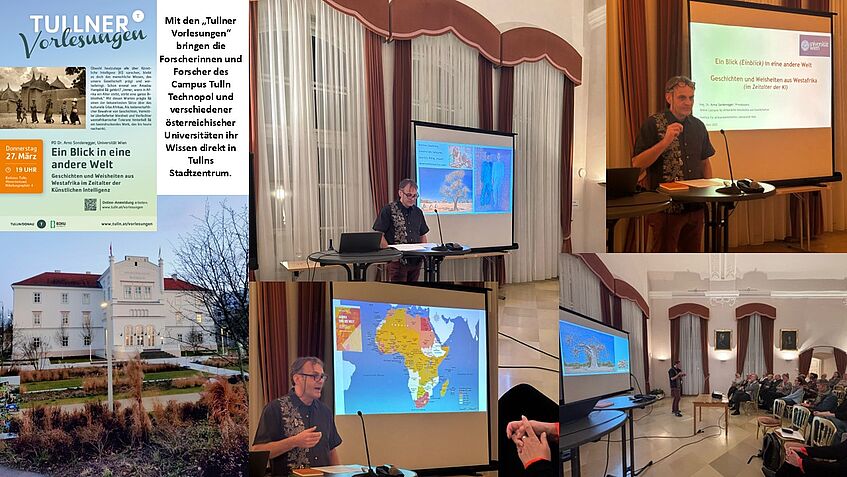
„Immer, wenn in Afrika ein Alter stirbt, stirbt eine ganze Bibliothek.“ Die Tullner Vorlesungen, die im Jahr 2024 auf Initiative des Campus Tulln Technopol begründet und in Kooperation mit der Stadtgemeinde Tulln an der Donau ausgerichtet werden, eröffneten... Weiterlesen
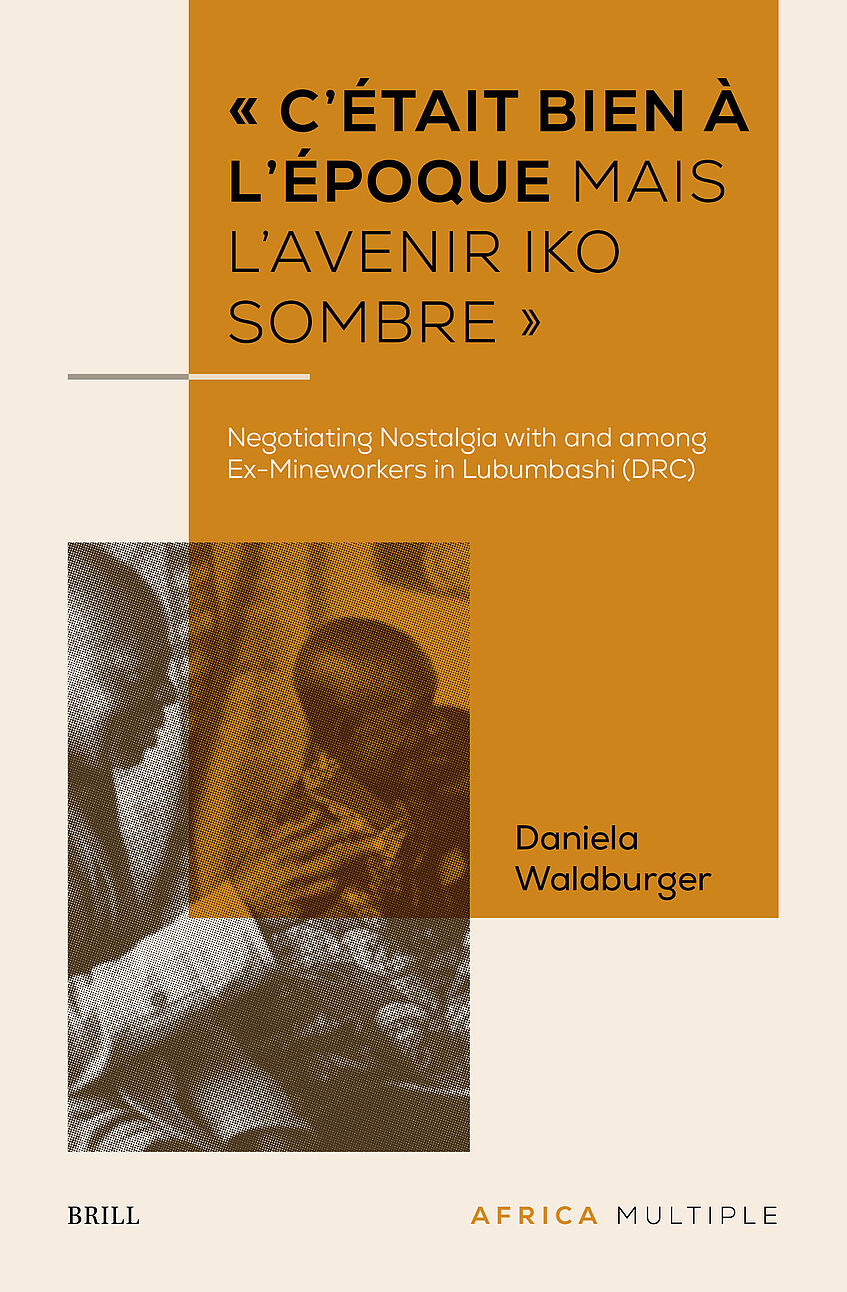
It is now out there: in open access thanks to the funding of the FWF and as a result from the FWF project “Employment-tied housing in (post)colonial Africa” (PI: Prof. Kirsten Rüther). Read More
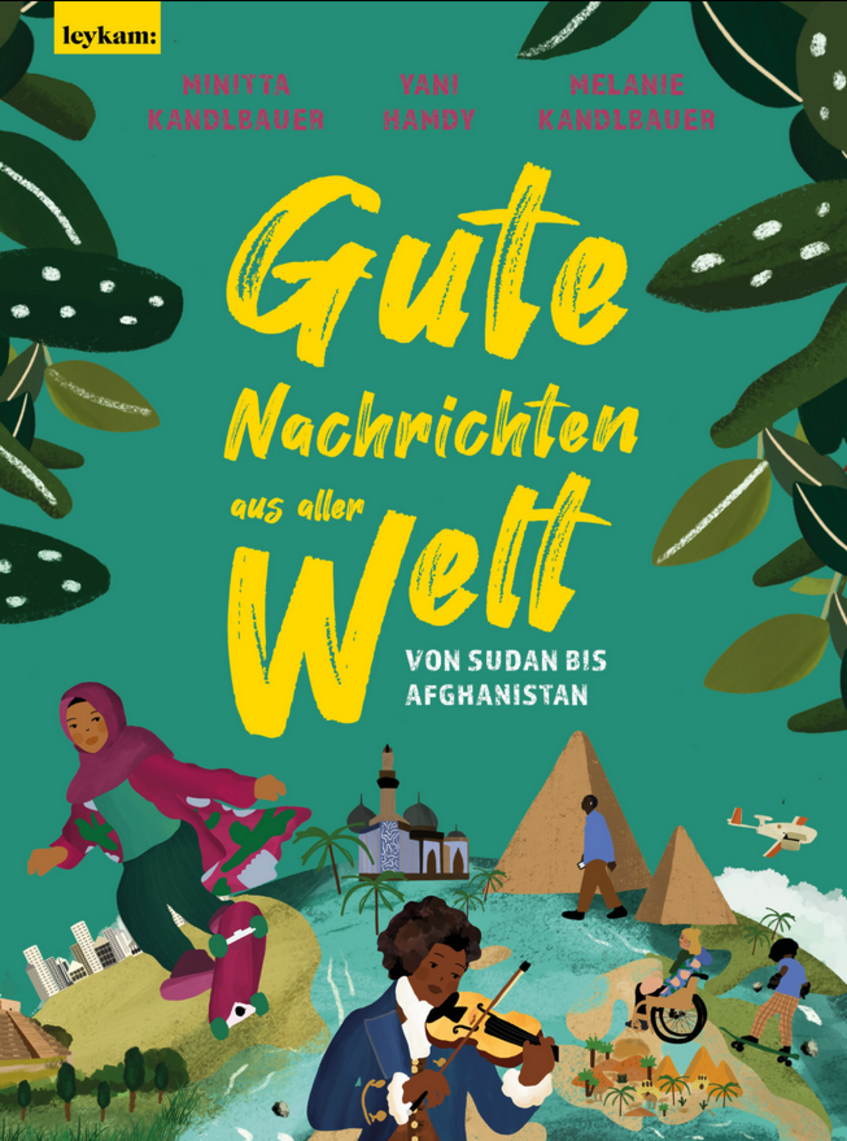
„Wusstest du, dass Fußball in China erfunden wurde? Wusstest du, dass im Jahr 2021 laut BBC 50 der 100 einflussreichsten Frauen der Welt aus Afghanistan kamen? Weiterlesen
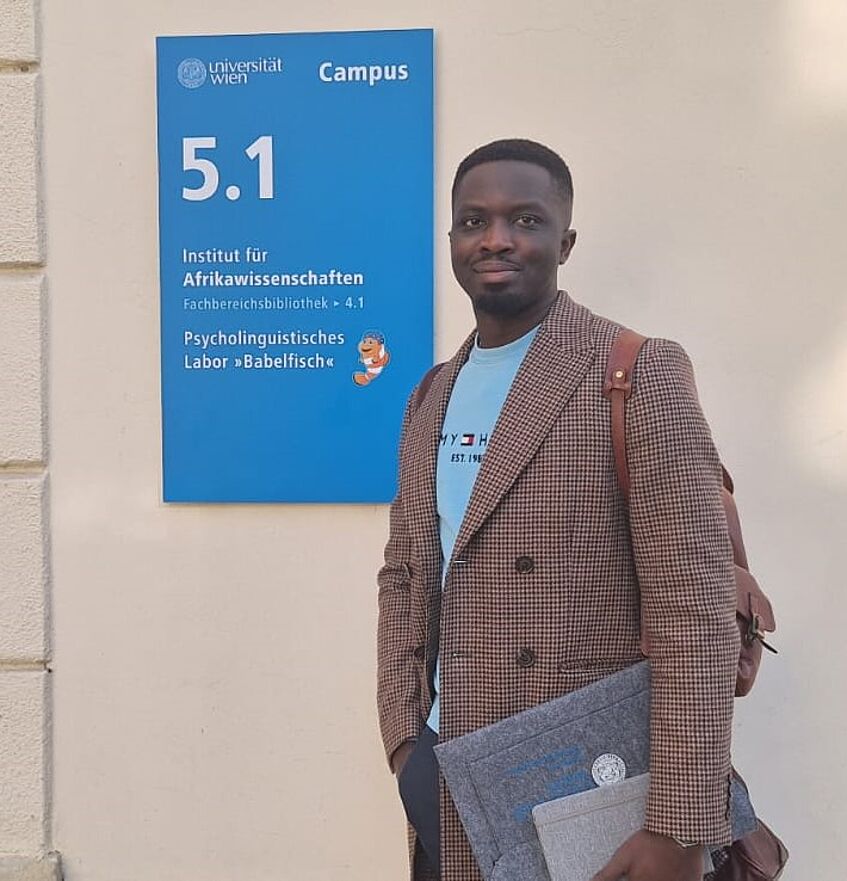
Dans le cadre de sa première tournée en Autriche, et après un passage à Graz (festival Weltwortreisende ; curateur : Fiston Mwanza Mujila), Mohamed Mbougar Sarr s’est rendu à Vienne le 19 octobre dernier, sur invitation de l’Institut Français d’Autriche, pour présenter son roman « La Plus Secrète Mémoire des Hommes », Prix Goncourt 2021... Lire plus

From Thursday to Saturday, June 13 to 15 2024, the African Studies Department hosted the 8th... Read more
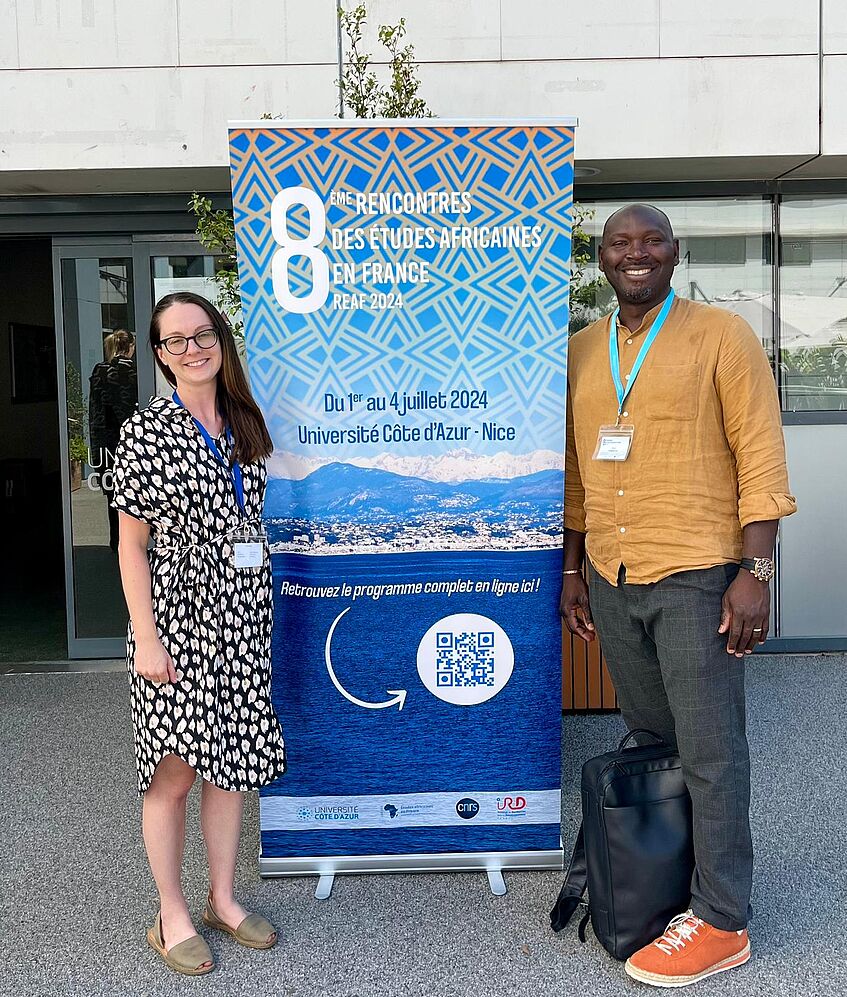
During the 8th Rencontre Des Études Africaines en France (REAF) that took place at the Université Côte D’Azur-Nice... Read more

May 2024 – this is an important moment in South Africa's past and present. It looks more than likely that this moment... Read more
